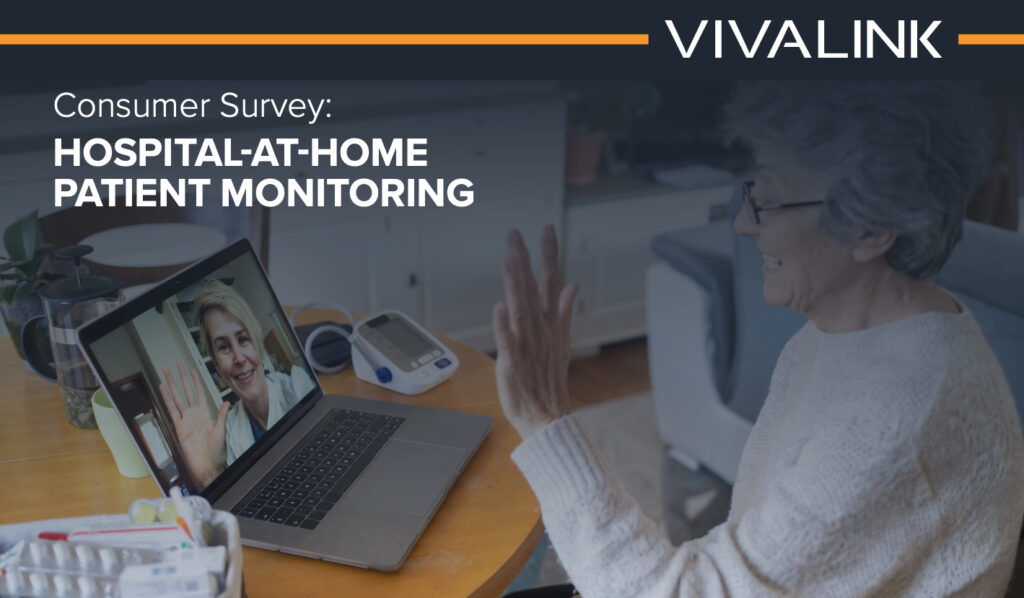
What You Should Know:
– As waivers allowing in-home patient care expire this year, a new survey by Vivalink, a leader in digital healthcare solutions, reveals a growing public interest in Hospital at Home (HaH) programs.
– The survey polled over 1,000 U.S. consumers aged 40 and over, highlighting a significant shift towards embracing remote healthcare options.
Overwhelming Preference for Home Recovery
The survey results are clear: a resounding 84% of respondents expressed a willingness to participate in HaH monitoring to recover at home rather than remain hospitalized. This preference aligns with the increasing popularity of HaH programs, with over 300 currently approved nationwide, allowing thousands to experience the comfort and familiarity of home recovery.
Trust in Healthcare Providers Drives Adoption
The survey also underscores the importance of trust in healthcare professionals. A significant 77% of respondents indicated they would trust their doctor’s recommendation to utilize HaH monitoring. This trust factor is crucial for wider adoption of HaH programs as a viable alternative to traditional hospital stays.
Positive Experiences Fuel Advocacy
The positive experiences of those who have already participated in HaH programs are another key driver of adoption. Among those surveyed with prior HaH experience, a remarkable 84% reported a positive outcome. However, the survey also identified a potential barrier – device usability. While nearly half (49%) of those with HaH experience found the remote patient monitoring (RPM) devices easy to use, concerns about device difficulty ranked as a top reason for hesitancy among those unlikely to participate (16%). This highlights the need for user-friendly technology to ensure broader accessibility.
Demographic Variations: Age, Location, and Experience
The survey also revealed interesting demographic variations in attitudes towards HaH programs:
- Age: Older respondents (over 70) were less familiar with HaH programs (42% awareness) and less likely to have participated (11%) compared to those in their 40s (77% awareness, 66% participation).
- Location: Urban residents showed higher participation rates (71%) compared to rural areas (25%). However, rural residents were more open to entirely remote primary care (36%) compared to urban counterparts (19%).
- Hospitalization Frequency: Individuals with frequent hospitalizations (3+ in the past year) expressed a stronger preference for HaH programs (95% willingness to participate) and a higher level of trust in provider recommendations for HaH monitoring (95%) compared to those with fewer hospitalizations (62% and 78%, respectively).
The Future of HaH Programs: Beyond Pandemic Waivers
The survey findings come at a critical juncture. The waivers introduced by the Centers for Medicare and Medicaid Services (CMS) in response to COVID-19, allowing for in-home hospital-level care, are set to expire at the end of 2024. This emphasizes the need for permanent adoption of flexible care models like HaH programs.
The strong consumer interest, positive user experiences, and trust in healthcare providers all point towards a future where HaH programs become a standard, rather than an exception, in the healthcare landscape.
“Consumers are increasingly driving the trend towards receiving care in the comfort of their own homes. This shift, accelerated by the COVID pandemic, underscores the importance of providing flexible and convenient healthcare solutions that meet patients’ evolving needs,” said Jiang Li, CEO of Vivalink. “At Vivalink, we are committed to the development of advanced digital healthcare solutions in order to improve access and efficiency of the healthcare system for all.”

